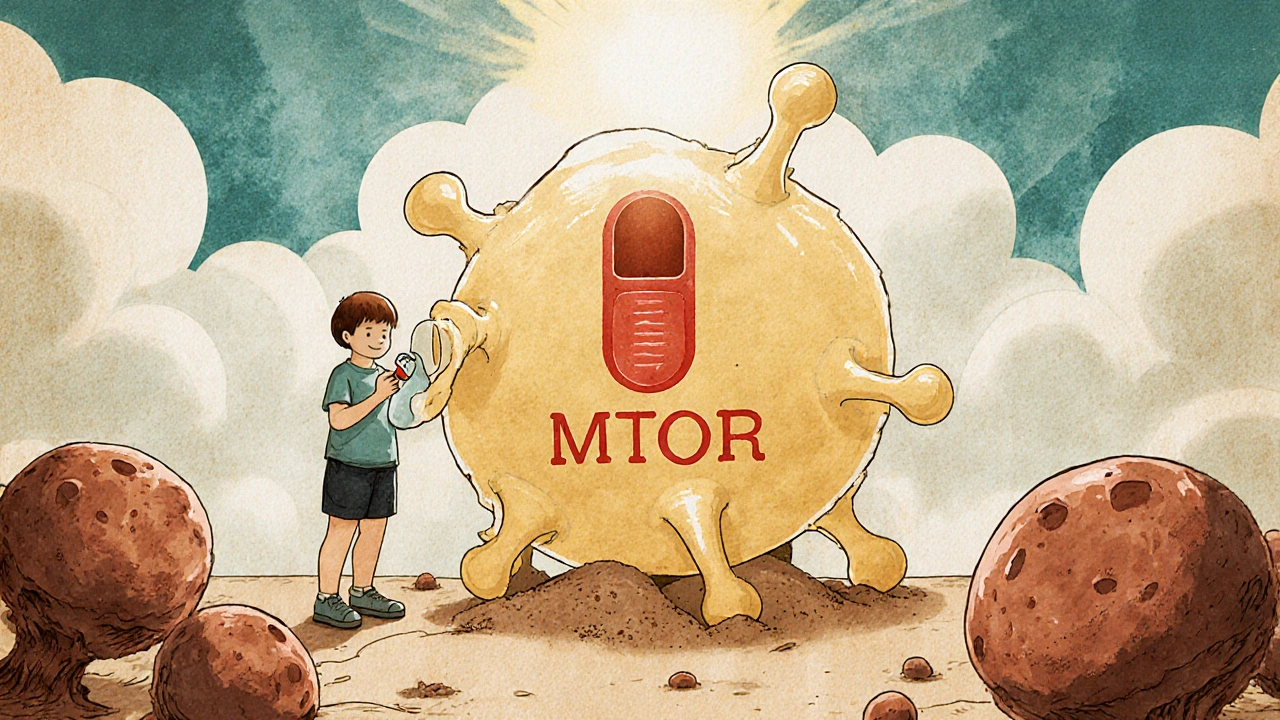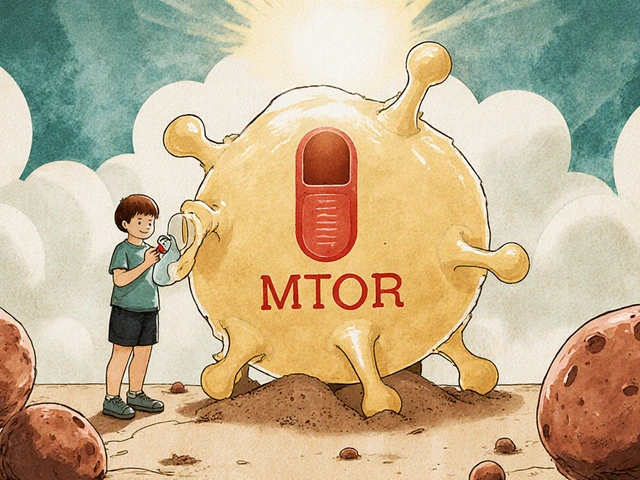mTOR Inhibitor: What It Is, How It Works, and What Drugs Use It
When you hear mTOR inhibitor, a class of drugs that block the mTOR protein, a central switch in cell growth and metabolism. Also known as mammalian target of rapamycin inhibitor, it’s not just a lab curiosity—it’s a real tool used in cancer therapy, organ transplants, and even aging research. Think of mTOR as the body’s gas pedal for cells: when it’s stuck on, cells grow out of control. That’s how tumors form. mTOR inhibitors hit the brakes, slowing down that runaway growth.
Drugs like sirolimus, a.k.a. rapamycin, used to prevent organ rejection and now studied for longevity, and everolimus, a modified version of sirolimus used in kidney cancer and certain brain tumors, are common mTOR inhibitors. They don’t just kill cells—they stop them from multiplying. That’s why they’re used in cancers like renal cell carcinoma and breast cancer where mTOR is overactive. These drugs also show up in transplant patients, helping the body accept a new kidney or liver without constant immune attacks. And yes, there’s growing interest in whether they can slow aging, though that’s still experimental.
You won’t find mTOR inhibitors in your local pharmacy for colds or headaches. They’re targeted, powerful, and come with serious side effects—like mouth sores, high blood sugar, and weakened immunity. That’s why they’re prescribed carefully, often after other treatments fail. The posts below dive into how these drugs compare with other treatments, what alternatives exist, and how patients manage side effects. You’ll see real-world comparisons with drugs like everolimus versus other targeted therapies, how natural supplements interact with them, and what patients actually experience when using them. This isn’t theory—it’s practical info from people managing complex health conditions.

Everolimus: How This Drug Is Changing Outcomes for Rare Disease Patients
Everolimus is transforming care for rare diseases like tuberous sclerosis and LAM by targeting abnormal cell growth. It shrinks tumors, improves lung function, and offers hope where few options existed.
Read More




